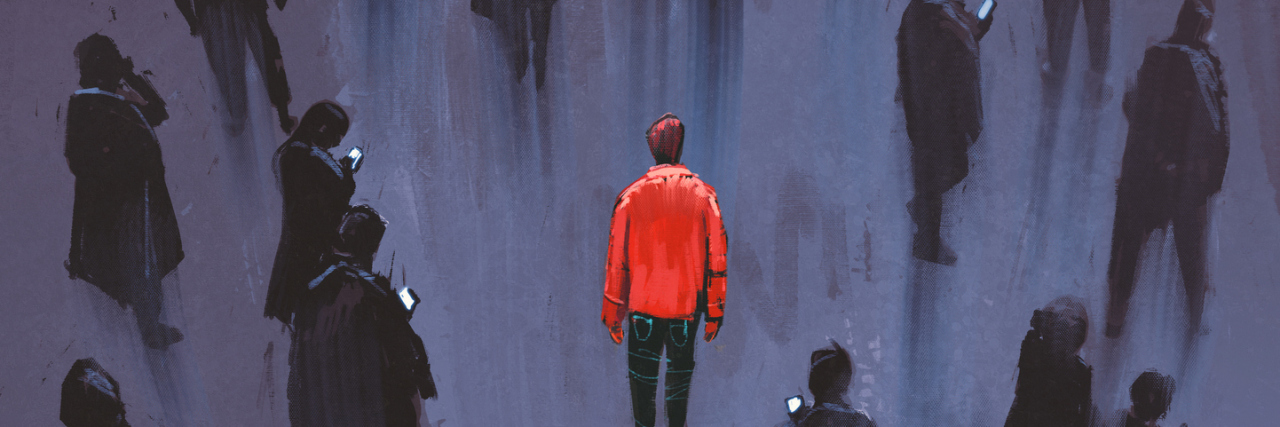On March 13, 1964, Kitty Genovese was murdered outside of her New York apartment. She was a victim of senseless violence, but it wasn’t actually the violence that killed her – it was the 37 people in her building who witnessed it and still didn’t call for emergency help. In psychology, this is often called the bystander effect. It occurs in crowds when people do nothing because they think that someone else will step in, or that someone else is more qualified than they are to help. Kitty Genovese is the trademark example of the bystander effect, but I think it’s time we recognize another one: people experiencing mental and chronic illness.
Consider this: how often have you seen someone struggling and said or done nothing? How many times have you brushed off someone’s comments about their mental health? How many times have you felt a twinge in your gut and ignored it? When was the last time you held yourself back from saying or doing something because you weren’t sure of? Most importantly, when was the last time there were real consequences for staying on the sidelines?
Last week, I stood in a crowd of maybe 30 runners at the finish line of a 10K. Instead of eating a banana and drinking water, I was having a panic attack. I was shaking, gasping, wheezing, crying – the whole nine yards. Out of the corner of my eye, I saw two women look. I saw their concern. I saw them consider coming over. And like everyone else at that finish line, I saw them decide not to.
Maybe they thought I was crying because I was disappointed in my finish time or that I was injured. They probably thought that someone else would handle it and that it wasn’t their place to get involved. Maybe they didn’t even know there was a problem in the first place. Either way, I think they are prime examples of the bystander effect and I am so scared for the day when their inaction matters.
To the bystanders, I’m asking you to please ignore your cautious politeness. Please ignore your prejudice and your fear and your uncertainty and just ask: are you OK? Is something wrong? What’s your name? Can I help you? Do you need anything? Can I stand here for a minute?
Maybe you ask and you get a smile because everything’s fine. Maybe you get brushed off and rebuffed. Maybe your 30 seconds of courage pays off and you make a difference. Please, find out.
We spend a lot of time reading articles about what not to do and what not to say. There is so much silence and stigma and caution tape surrounding the mental and chronic illness populations and I think it’s becoming a barrier. Please, by all means, read the articles and inform yourself to your heart’s content, but I’ll go ahead and tell you that when it comes down to it, here’s what you need to know: the only “wrong” thing to do is to do nothing.
We want to hear your story. Become a Mighty contributor here.
Thinkstock photo via Grandfailure

